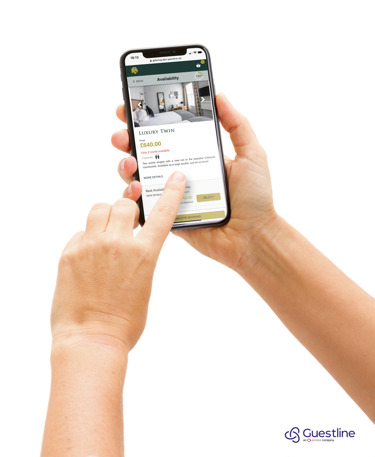Blog

When it comes to hotels, the right price always wins
Read article on When it comes to hotels, the right price always wins
What you need to know about sustainability certifications for hotels
Read article on What you need to know about sustainability certifications for hotels
Patient Portals
Read article on Patient Portals
Marginal gains in education: Small steps that help schools & trusts make strides
Read article on Marginal gains in education: Small steps that help schools & trusts make strides
Call time on inefficiency with the right tech partner
Read article on Call time on inefficiency with the right tech partner
What are the advantages and disadvantages of electronic medical records?
Read article on What are the advantages and disadvantages of electronic medical records?
How to Buy a Care Home – What to consider
Read article on How to Buy a Care Home – What to consider
What does it mean for a school to go into financial deficit – and how do you get out of it again?
Read article on What does it mean for a school to go into financial deficit – and how do you get out of it again?
Spending Review 2025: A Stronger Future for Health and Social Care?
Read article on Spending Review 2025: A Stronger Future for Health and Social Care?
Why parents love the new Access My School Portal app
Read article on Why parents love the new Access My School Portal app
Choosing AI case management software? Here’s how Access Legal Case Management Evo delivers from day one
Read article on Choosing AI case management software? Here’s how Access Legal Case Management Evo delivers from day one
Re-thinking Clinical Safety: The Impact of AI in Health and Social Care Software
Read article on Re-thinking Clinical Safety: The Impact of AI in Health and Social Care Software
NHS Confed 2025: A System Ready for Reform
Read article on NHS Confed 2025: A System Ready for ReformWhat is the offboarding process in HR?
Read article on What is the offboarding process in HR?
Restaurant waitlist management - how to keep your customers happy!
Read article on Restaurant waitlist management - how to keep your customers happy!
Hospitality SEO: 16 ways to get your venue to the top of Google Search in 2025
Read article on Hospitality SEO: 16 ways to get your venue to the top of Google Search in 2025
7 restaurant entertainment and event ideas
Read article on 7 restaurant entertainment and event ideas
9 restaurant email marketing ideas with examples (+ why they work)
Read article on 9 restaurant email marketing ideas with examples (+ why they work)
Everything you need to know about venue hire for your pub, bar or nightclub
Read article on Everything you need to know about venue hire for your pub, bar or nightclub
What is competitive socialising and how can your venue benefit from it?
Read article on What is competitive socialising and how can your venue benefit from it?
How to Open a Bar - 10 Steps for Success in 2025
Read article on How to Open a Bar - 10 Steps for Success in 2025
Why leading temp agencies are moving to end to end payroll solutions
Read article on Why leading temp agencies are moving to end to end payroll solutions
Simmering Discontent: Tackling the Repair Crisis in Social Housing
Read article on Simmering Discontent: Tackling the Repair Crisis in Social Housing
Boosting Your Hotel’s Food and Beverage Profitability with EPoS
Read article on Boosting Your Hotel’s Food and Beverage Profitability with EPoS
Guest self-service saves hotels 6,000+ hours and drives revenue
Read article on Guest self-service saves hotels 6,000+ hours and drives revenue
Provider collaboratives
Read article on Provider collaboratives
ADASS, TSA & The Access Group: Advancing TEC in Social Care
Read article on ADASS, TSA & The Access Group: Advancing TEC in Social Care
Optimising Hotel Workforce Management with Rotaready
Read article on Optimising Hotel Workforce Management with Rotaready
How Hotels can Prepare for the 2025 Budget
Read article on How Hotels can Prepare for the 2025 Budget